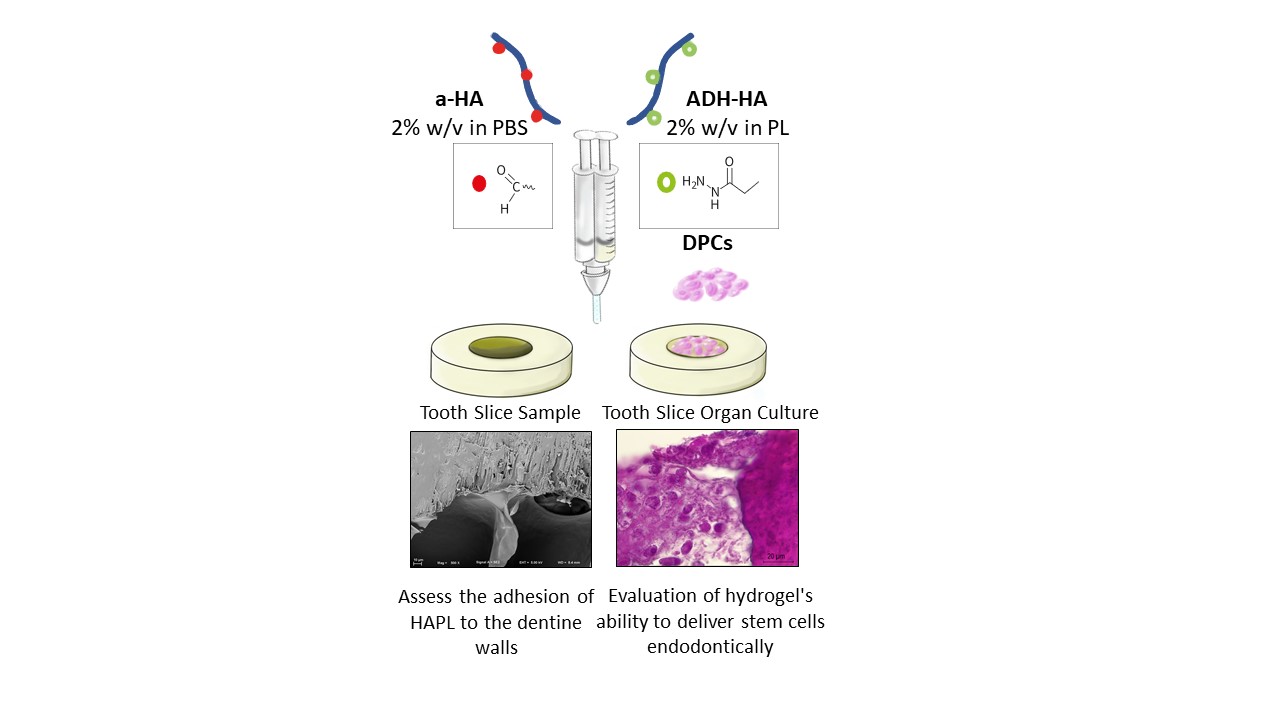Dental pulp tissue engineering (TE) quests to regenerate dentin/pulp complex by combining a suitable supporting matrix, stem cells, and biochemical stimuli. Such procedures foresee a matrix that can be easily introduced into the root canal system (RCS) and tightly adhere to dentin walls to assure the dentin surface's proper colonization with progenitor cells capable of restoring the dentin/pulp complex. Herein was investigated an injectable self-setting hyaluronic acid-based (HA) hydrogel system, formed by aldehyde-modified (a-HA) with hydrazide-modified (ADH), enriched with platelet lysate (PL), for endodontic regeneration. The hydrogels' working (wT) and setting (sT) times, the adhesion to the dentine walls, the hydrogel's microstructure, and the delivery of human Dental Pulp Cells (DPCs) were studied in vitro. Hydrogels incorporating PL showed a suitable wT and sT and a porous microstructure. The tensile tests showed that the breaking point occurs after 4.13 mm deformation. While in the indentation test after 1.3 mm deformation. Both breaking points occur in the hydrogel extension. The HA/PL hydrogels exhibited supportive properties and promoted cell migration toward dentin surfaces in vitro. Overall, these results support using PL-laden HA injectable hydrogels (HA/PL) as a biomaterial for DPCs encapsulation, thereby displaying great clinical potential towards endodontic regenerative therapies.

